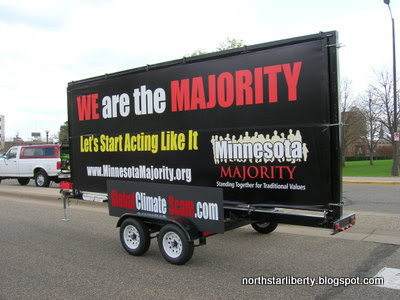 |
| Photo by Kalikkio, https://creativecommons.org/licenses/by-nc-sa/2.0/ |
In a one-sided story, “Medtronic deal could sting for long-time shareholders,” the Strib again plays the big, bad corporation against the innocent “little guy” — but the real villain (hero?) is left unnamed.
“The thing that bothers me the most is that this is a Minneapolis-based company that depended on the Minnesota investment community for its initial financing, that attracted investment from Minnesota investors first,” Cohen said. “The ones that were there in the beginning are the ones that are going to get screwed.”...Medtronic shareholders, who will be required to sell all of their shares (some at large gains over the purchase price) when the Covidien deal closes, should be thanking Congressional Democrats, Governor Dayton, and state DFL lawmakers for Obamacare, bailouts, MNCare, light rail trains that unite Minneapolis and Saint Paul, a new Senate Legislative Office Building, statues, fountains, civic centers, stadiums, the arts, regulatory burdens, and the overall quality of life that taxes make possible.
Howard Richards, a certified financial planner at Securus Wealth Management in Plymouth, offers a worst-case scenario: a taxpayer subject to the top federal capital gains rate of 20 percent, an Obamacare tax of 3.8 percent and Minnesota’s top marginal rate of 9.85 percent.
If we didn't tax capital gains at these confiscatory rates, it would only encourage large and small investors alike to invest more in the private enterprises of their choice. That would leave less wealth for redistribution by federal, state, and regional agencies, for the greater good. Ditto for ever-higher taxes on corporate profits.
Besides that, how fair is it to those less fortunate when you risk your own money in a small startup like Medtronic, and the stock increases in value over time as the company provides innovative goods or services that people want? You shareholders didn't actually do anything to deserve your windfall. How could anything that you would buy with that “free money” possibly be better than increasing the size and scope of government?
Quit whining about your first-world problems, Medtronic shareholders: you're rich. You'll still have well over half of your obscene profit even after taxes. For the greater good, share the wealth. Medtronic should be proud to pay the highest corporate tax rate in the world. You should be asking to be taxed more, not less. You should be voting Democrat.









 Check out
Check out 

